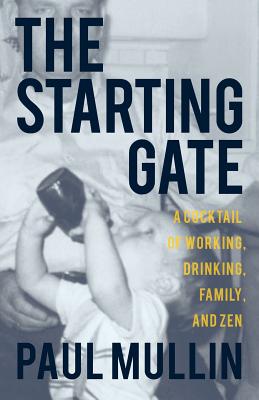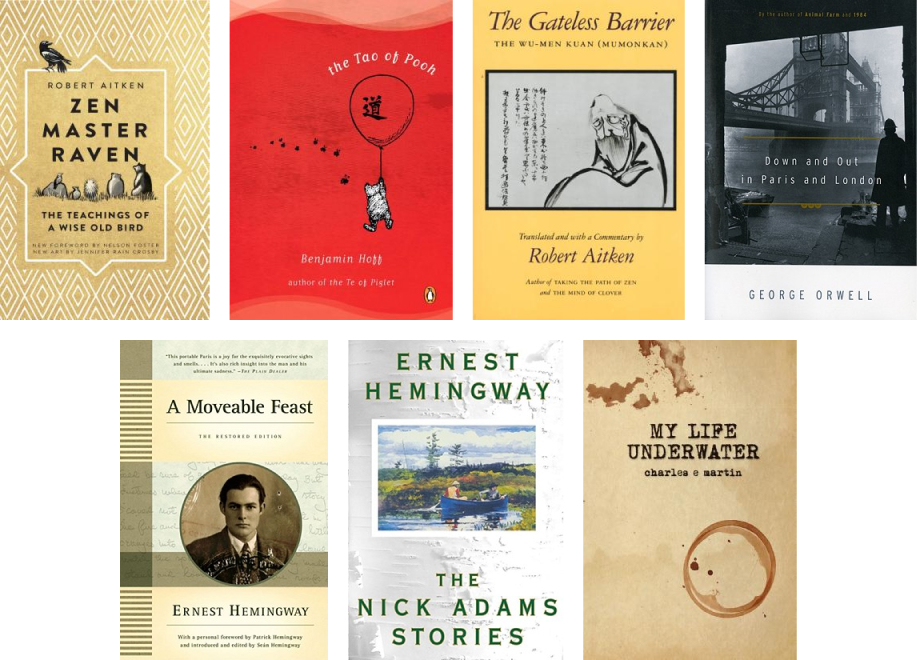Whatcha Reading, Paul Mullin?
Every week we ask an interesting figure what they're digging into. Have ideas who we should reach out to? Let it fly: info@seattlereviewofbooks.com. Want to read more? Check out the archives.

Paul Mullin is a Seattle-based writer, self-described "recovering" playwright — for which he won a Stranger Genius award — host of the monthly reading series Loud Mouth Lit
, and author of The Starting Gate: A Cocktail of Working, Drinking, Family, and Zen. The next Loud Mouth Lit is Tuesday, September 24th at 8pm at St Andrew's Bar and Grill. Paul will be joined by Kelleen Conway Blanchard, author of The Neverborn (in its last weekend at the Annex Theatre!).

What are you reading now?
A buddy of mine gave me a couple books before he moved to Kyoto with his wife and daughter, one of them is Zen Master Raven: Sayings and Doings of a Wise Bird by Robert Aitken. I put it off for a while, because I was afraid it was going to be a cutesy, twee, Westernizing white-wash of the practice I’ve been engaged in for over three decades now, something in the vein of The Tao of Pooh (though I have to say that I do owe that book a huge debt). Instead, Zen Master Raven is a stark, deep-running collection of what can only be called modern American koans. Not surprisingly, Robert Aitken turns out to be a bona-fide Rōshi, having received the Dharma transmission from Koun Yamada in 1985. His stories have the same starkly ineffable force as any koan you might find in the classic Zen text The Mumonkan. I would love to figure out how to infuse this quality into my own story-telling: the clarity of a wooden block.
What did you read last?
I recently went to Europe for the first time in my life and I went on a bit of a Paris kick with my reading when I got back. I bounced from Hemingway to Orwell’s Down and Out in Paris and London to Alan Furst’s wonderfully wrought series of spy books set in and around the City of Light prior to and during World War II.
When it came to Papa in Paris A Moveable Feast was a no-brainer pick and it did not disappoint. It’s a plain joy, with the absurdly handsome and virile young Hemingway serving as a synecdoche for all of America’s blundering, blustering early 20th Century youth crashing into the jaded mores of Europe. But I also checked out The Nick Adams Stories, and finally learned a valuable lesson about Hemmingway’s stories. They either speak to you or they don’t. It ran about 50/50 for me, but the ones that worked were a revelation of understatement and meticulous observation. He’s a bit like Chekhov that way, though Chekhov’s batting average is way higher than .500 (for his short stories anyway: ironically or not, I am not a big fan of his plays).
Orwell’s book is a must read, if only to understand that homelessness has always been a problem in big cities and their surroundings. The “Seattle-is-Dying” crowd would have loved England’s solution in the 1930s, which was to force itinerant men to shelter each night in a different town or village, forcing them to walk as much as 20 -30 miles each day between stays.
I finally had to let the Furst books go when the main characters started blurring into the same flawed but ultimately noble Allied operative.
What are you reading next?
I’m so stoked to answer this question because I can’t wait to read a book that got handed to me on Wednesday by the author Charles E Martin. It’s called My Life Underwater. I’ve only read the first page, but based on that it promises to be excellent.
I have special tangential connection to Charles because he’s the new cook in my neighborhood bar, The St Andrew’s, which also happens to be where I host my monthly literary series Loud Mouth Lit. It delights me to think that I have some small part in expanding the soccer-and-scotch bar I first stumbled into from the bus stop 15 years ago into a genuine literary establishment. The Algonquin of Aurora, maybe? I have a strong suspicion Martin will be one of my LML guests in the coming months. So stay tuned. Seattle’s a small world for writers, and I hope that never changes.